Introduction
Chicken is a healthy, protein-rich meat that contains vitamin B6, calcium, magnesium, as well as iron. But can dogs eat chicken?
We’re answering this question and more in today’s article and also looking at several risks and concerns associated with feeding your dog chicken.
Benefits of Chicken for Dogs
Before we move on to the rest of the article, we’d like to note that cooked chicken is typically safe for dogs, especially if it is unseasoned.
Feeding completely bland chicken to your pet is often recommended by vets, especially if your dog has recently had a bout of indigestion in the form of diarrhea or vomiting.

B vitamins
Chicken contains a variety of vitamins in the B complex, such as B6, B12, as well as biotin and niacin. B vitamins have scientifically been linked with a lot of processes inside mammals’ bodies.
Giving your dog chicken on a regular basis can supply your pet with a decent amount of energy and can also reduce fatigue and tiredness.
B vitamins are also known for keeping your dog’s immune system and nervous system healthy, and they also assist in balancing your dog’s metabolism.
Protein
The amount of protein in chicken meat is by far the most significant reason to feed it to your dog. One hundred grams of chicken supplies your dog with 239 calories, but more than half of those (54%) are going to be pure protein.
Although dogs are known to be somewhat omnivorous compared to other animals, such as cats, they still need a fairly high amount of protein to thrive. Chicken is an inexpensive protein source that you can conveniently add to your dog’s diet.
Minerals
While this type of meat isn’t necessarily the richest in minerals in the world, it still contains several. One hundred grams contain 5% in magnesium, 7% in iron, and 1% in calcium.
So while giving your dog chicken is not going to prevent rickets or osteoporosis (due to the low calcium content), it will help your dog to build lean muscle mass. The iron will also prevent your dog from becoming anemic.
Is Chicken Bad for Dogs?
Are dogs allergic to chicken? Can puppies eat chicken? What are the most significant risks of feeding this protein to your dog? Check out the sections below for all the answers!
Food intolerances
Because this meat type is by far the most common one currently in the market and currently used by humans, it’s also a very common ingredient in commercial dog diets.
But dogs that are fed chicken throughout their lives have a much higher likelihood to develop food intolerances or allergies compared to those that are fed varied protein types.
For this reason, we recommend varying between the meat types you give to your dog. Even if you solely give your pet kibble, you should still mix it up every now and then.
Today might be a good day for chicken, but tomorrow could be a good day for beef, the day after that might call for lamb, and on the next, perhaps you should consider giving your dog salmon kibble and canned food.
Exposing your dog to several different types of meat effectively prevents canine food allergies.
Bacterial contamination
Even if you aren’t an aficionado of raw diets for dogs, if you decide to give your dog chicken meat, you need to know that it might be contaminated with several types of germs.
The most common one is Escherichia coli, and the least severe symptoms that dogs can suffer if they develop an infection would be vomiting and diarrhea.
But a recent study has found that giving your dog chicken necks, for example, might expose them to Campylobacter spp, a bacterium that’s extremely dangerous and that can cause paralysis in pets.
Properly cooking the chicken and making sure that it is not raw in any way is the best way of going about things.
Digestive distress
We’ve already mentioned the digestive upset that dogs can suffer from if they accidentally eat chicken that hasn’t been cooked thoroughly, but there’s another aspect that needs to be considered.
If you plan on using your leftovers as your dog’s main source of food, think again. Chicken leftovers can contain a wide range of ingredients that are not good for dogs and that can cause indigestion — from butter or oil to garlic or onion.
So, should dogs eat chicken leftover from your meals? The answer to this question is a clear no. Avoid giving it to puppies and nursing mothers for the same reasons.
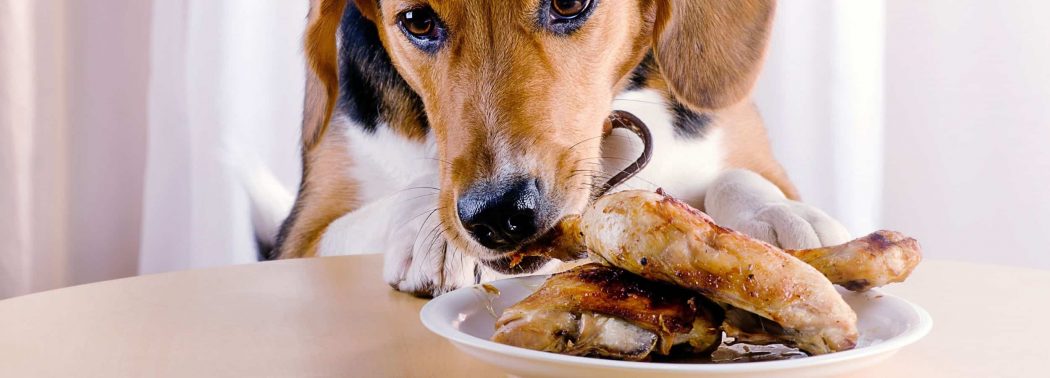
How Much Chicken Can A Dog Eat?
The amount of chicken that you can give your pet depends on their weight, health status, and whether it’s a snack or their main food type.
As you know, dog breeds can vary a lot from one individual to the next in terms of size, so calculating the right amount should be done based on the following equation:
¼ to ⅓ cups per 20 lbs of body weight / day
If you already feed your dog a commercial diet or one that has been recommended by your vet, there is no need to add any more calories. You can look at chicken as a snack rather than an important meal, in this case.
How to Prepare and Serve Chicken to Your Dog
Regardless of the type of chicken part that you decide to give your dog, it needs to be boiled, steamed, or cooked in the oven. Grilled chicken is also fine, but you have to make sure that it is completely cooked through.
If you intend to cook it in the oven, it needs to reach a temperature of at least 165 degrees F for 5 minutes or more.
Can dogs have chicken that’s been prepared for your family meals? No. Bland chicken is the best for dogs.
If your dog ate chicken when you left them unsupervised, you have to watch out for several symptoms for at least a couple of hours. Call your vet and tell them what happened and how much your pet actually ate and they will advise you on what you’re supposed to do.
Frequently Asked Questions
Although raw diets have become popular with pet owners in the past several years, most vets advise against it. Unless you have access to extremely fresh chicken meat, you should never give it raw to your dog.
After all, the last thing you might want would be to give your dog food poisoning, right?
No. Chicken bones, but also the bones of other poultry types, have this bad habit of being broken into splinters. They can become lodged in your dog’s throat, so they can make your dog choke. Another possibility is for them to cause an intestinal puncture and severe hemorrhage and a bad infection.
If you are referring to the chicken nuggets that you can get from some fast food chains, no. Heavily processed meats are usually unhealthy for dogs and humans alike – since they can be made from meat leftovers rather than the muscles themselves.
Also, they can contain seasonings and spices that could make your dog sick. If your dog is a huge aficionado of chicken nuggets, you can make them at home with ingredients like almond flour or pumpkin.
Yes! Chicken broth is packed in protein and essential fatty acids, so it’s quite healthy. It helps your dog to repair and build muscle, bone, skin, and it even assists your pet’s body in producing new blood cells. It also contains iron, which prevents anemia.
Summary
Chicken is a fairly healthy type of meat that you can give to your dog, so long as you cook it thoroughly and make sure you skip the seasonings and spices.
Cooked chicken breast is lower in fat and calories, so it makes a great treat for pets predisposed to obesity. Cooked chicken thighs are slightly fatty by comparison, but they’re still generally healthy for most adult dogs.
If you have any doubt about giving your dog chicken in any way, be sure to reach out to your veterinarian.
Sources
- Raw chicken linked to paralysis in dogs, 2018, Dr Nerissa Hannink
- E. coli infection, 2019, Centers for Disease Control and Prevention
- Raw diets for dogs and cats: a review, with particular reference to microbiological hazards, 2019, R. H. Davies, J. R. Lawes
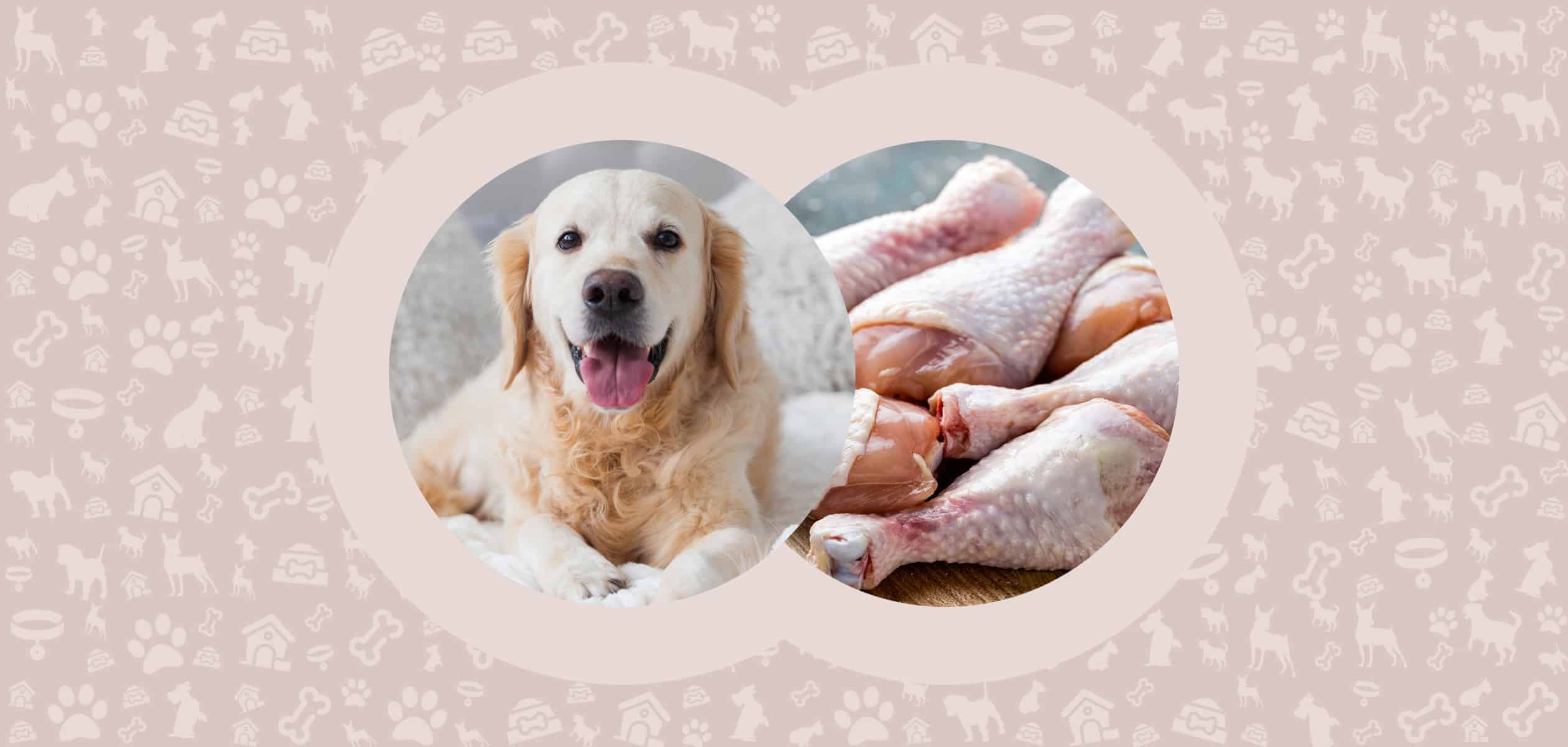
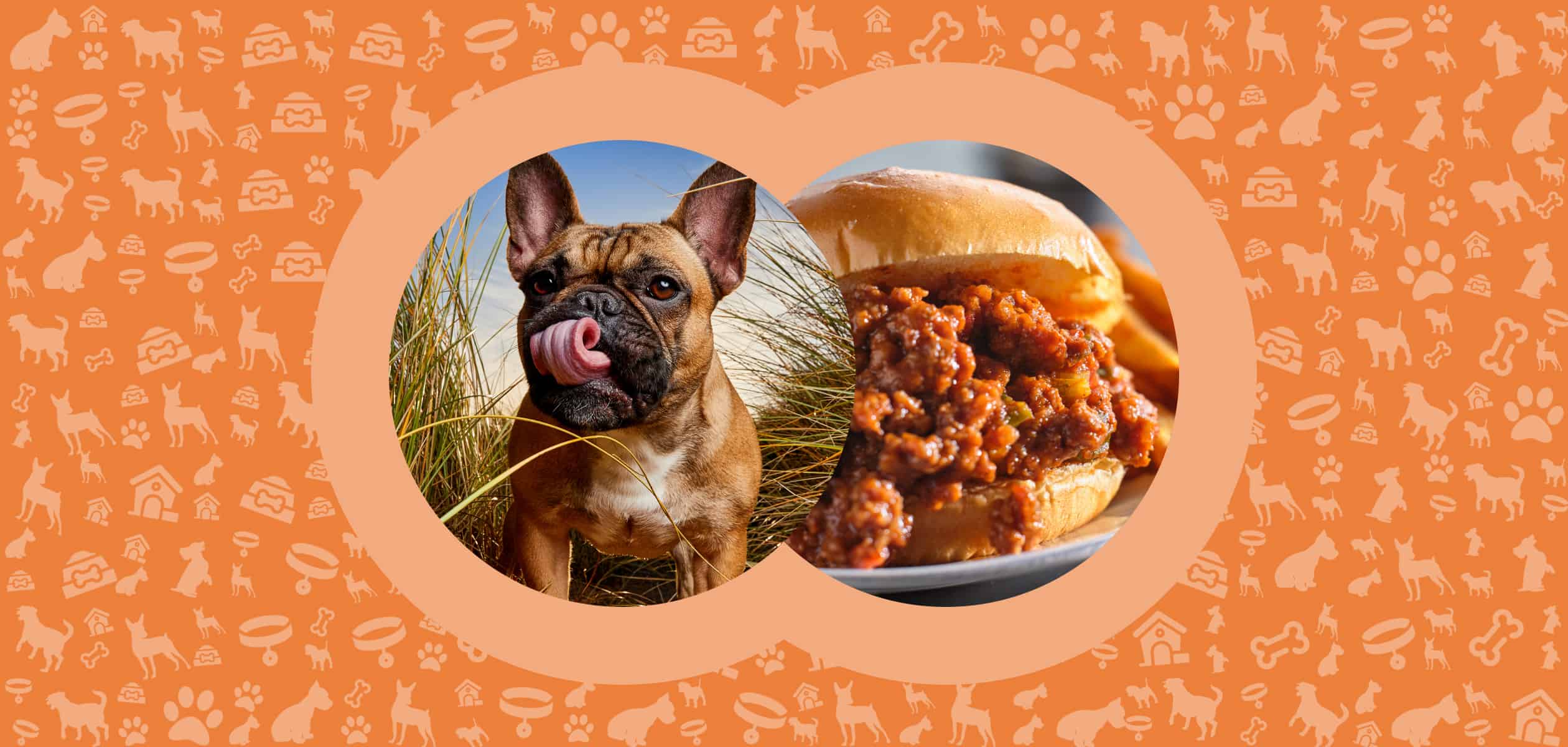
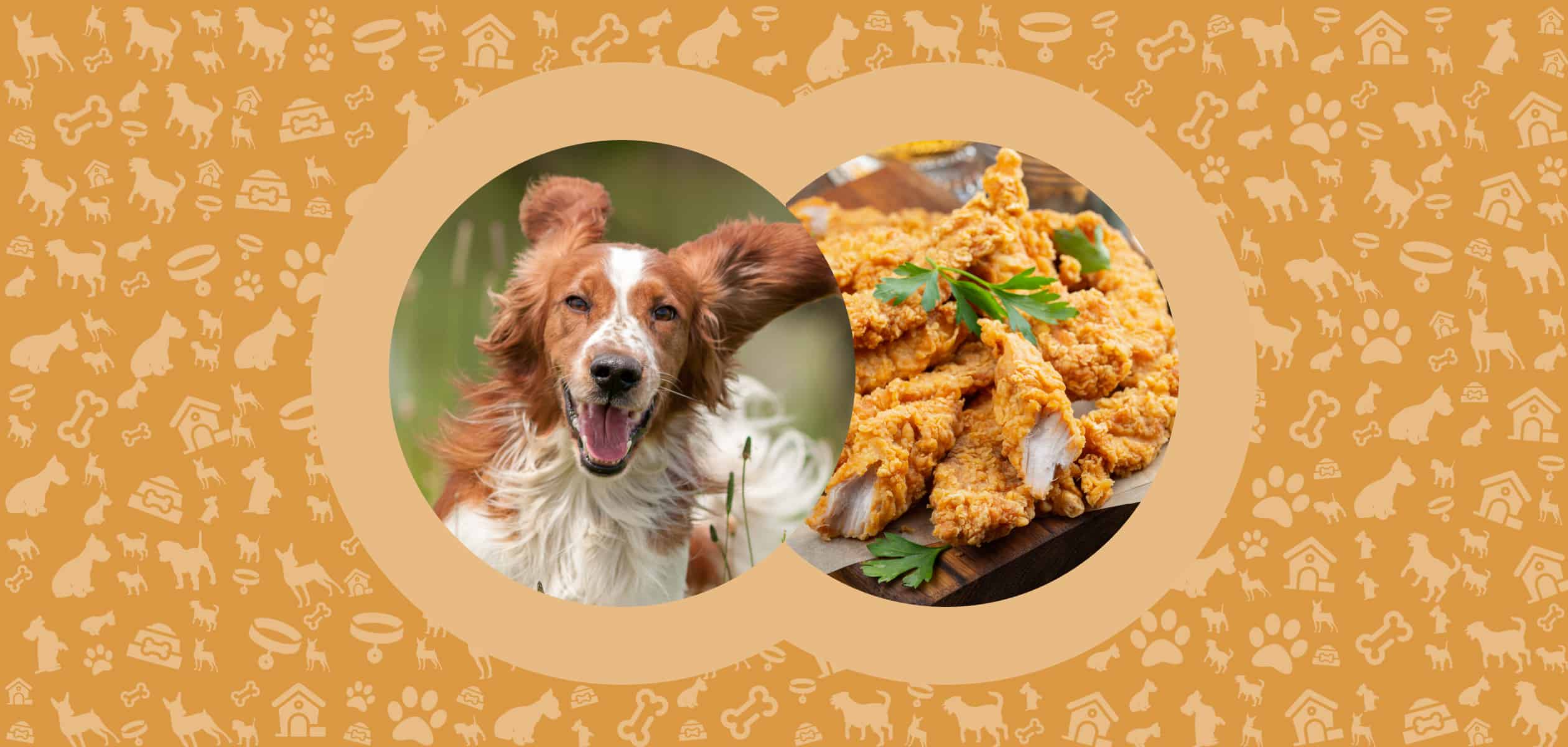
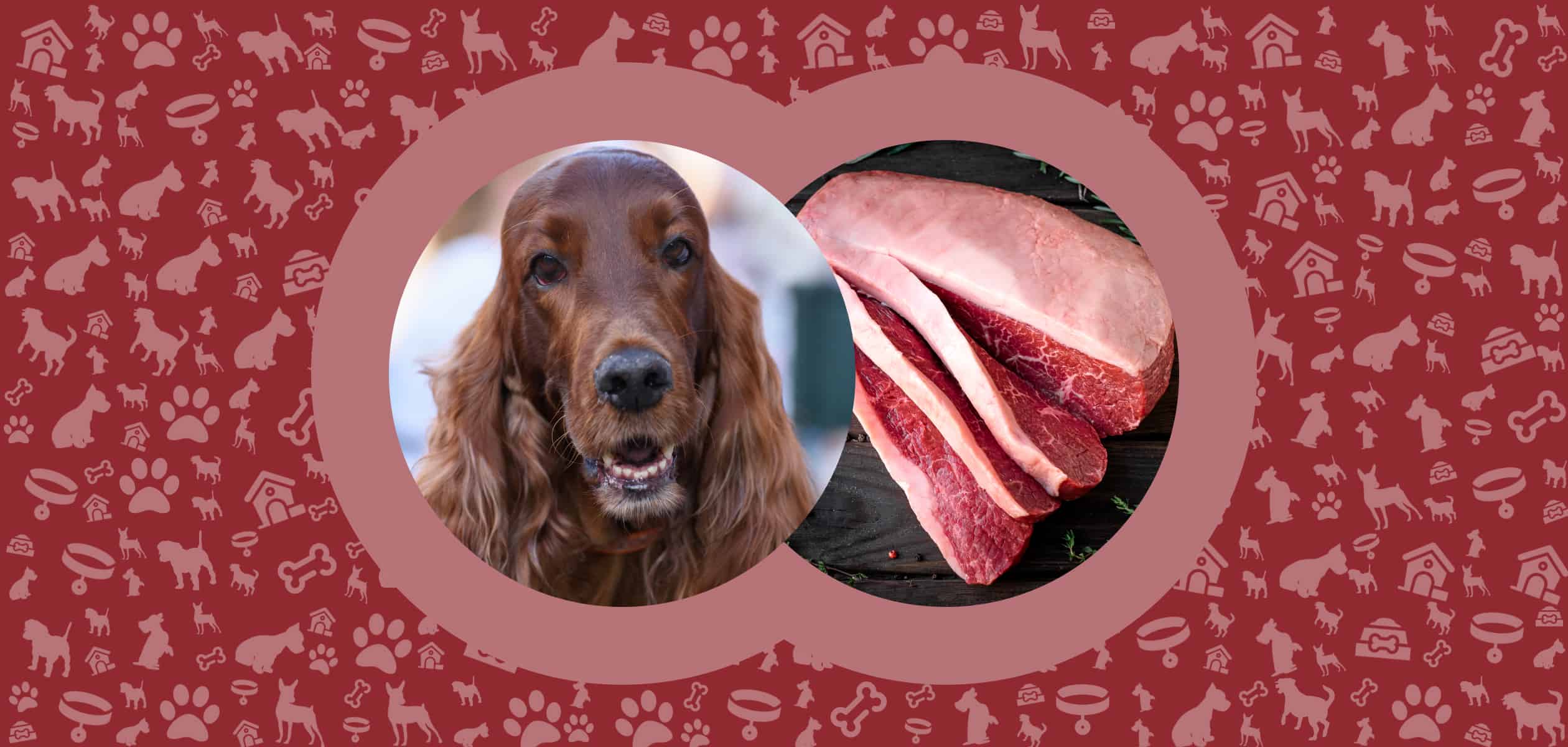
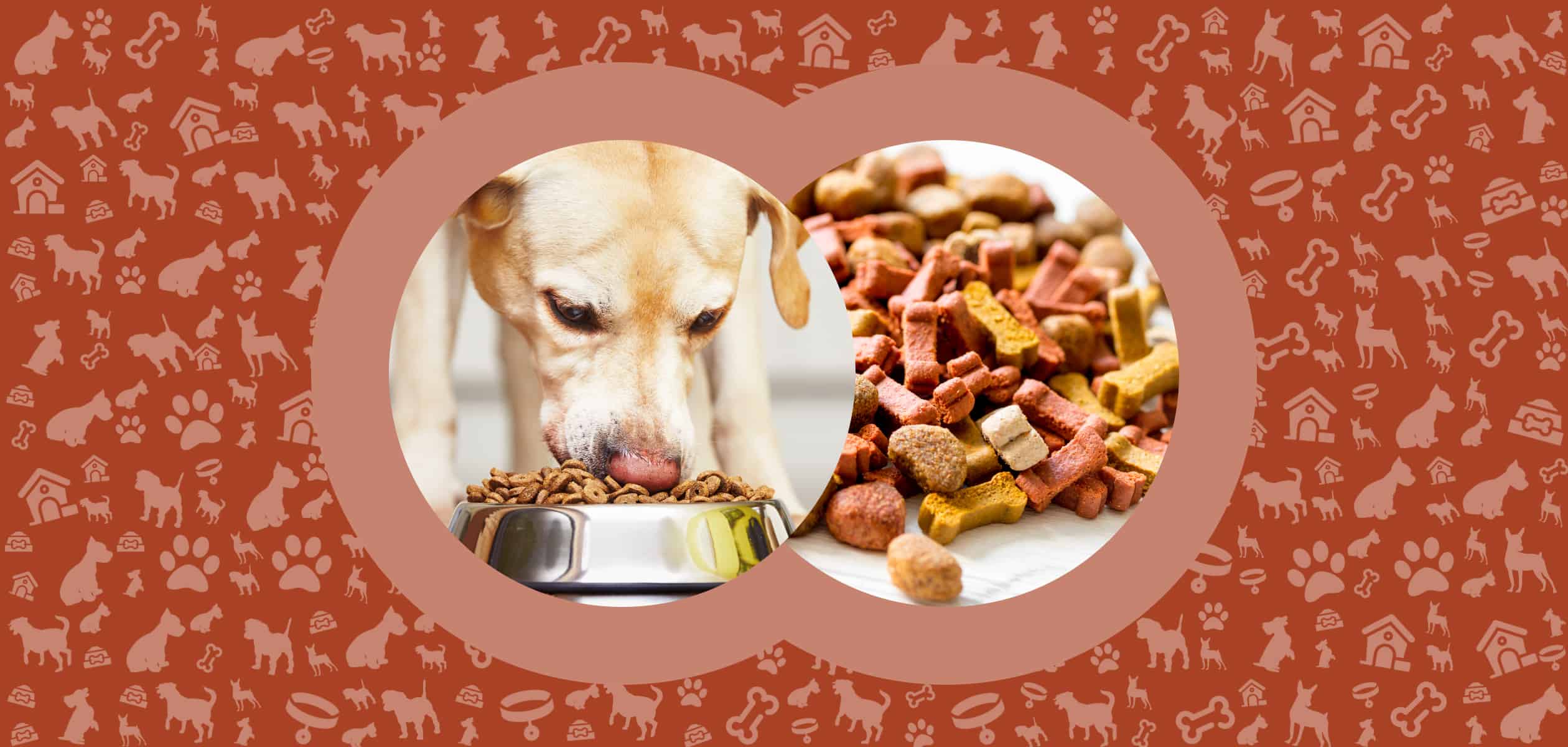
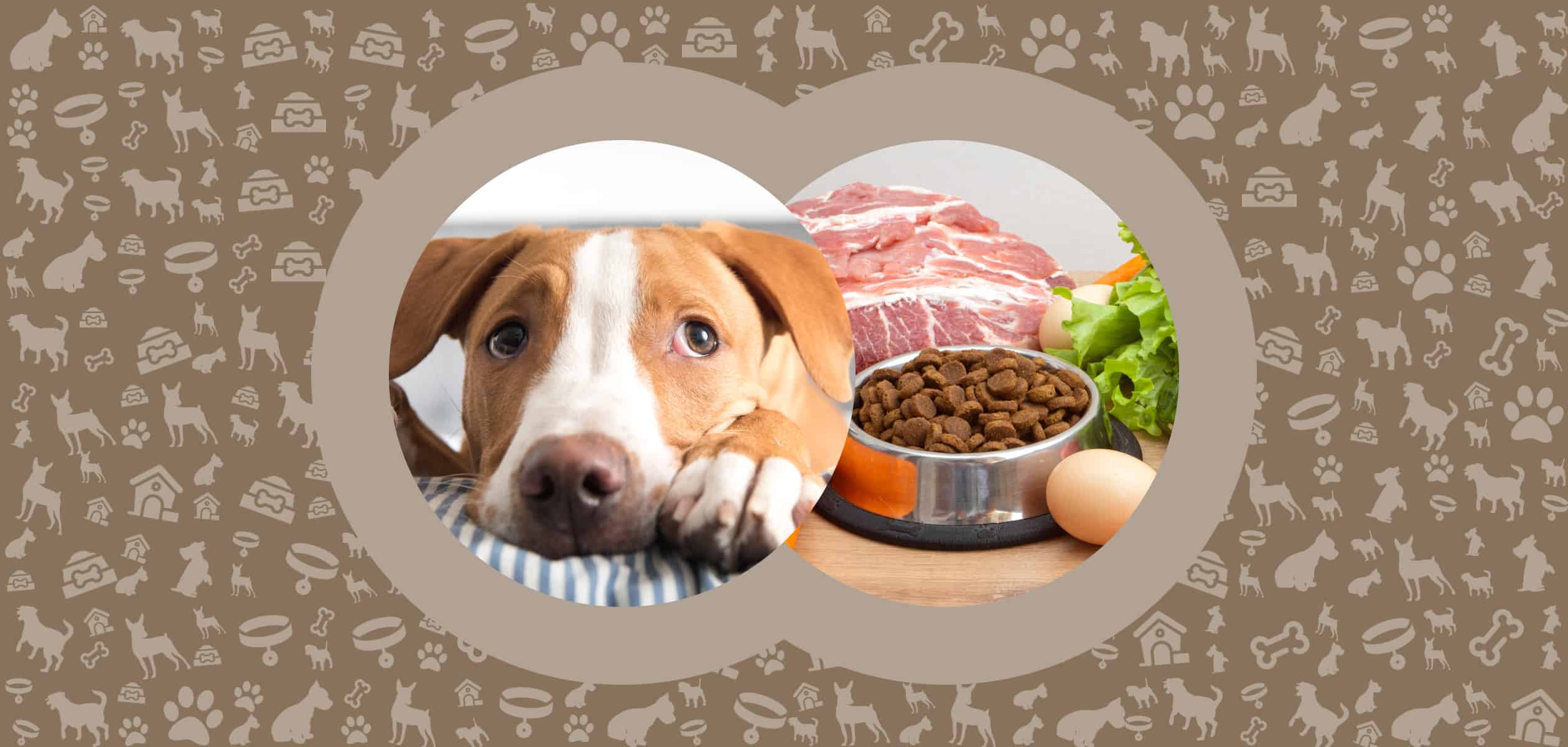
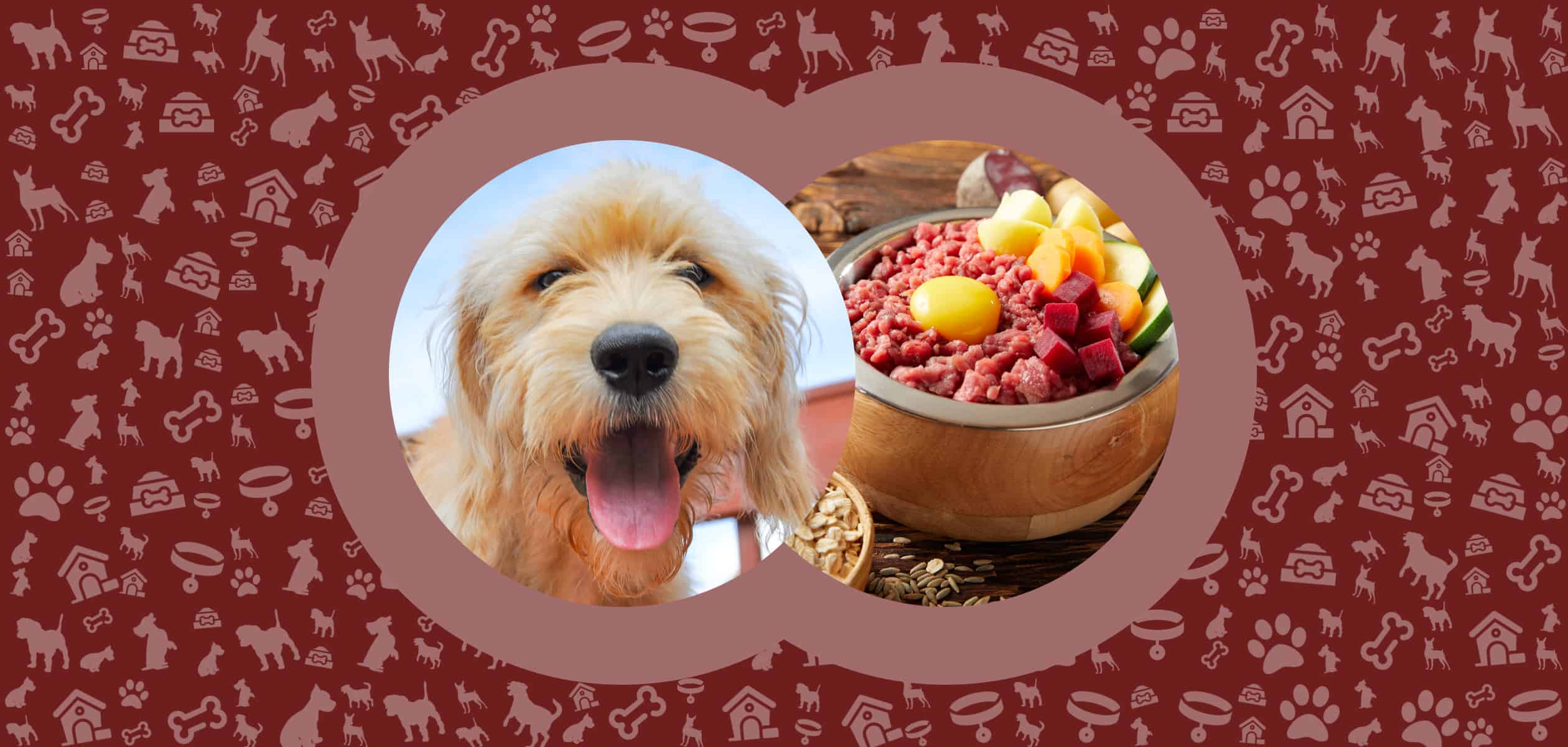
Leave a Comment